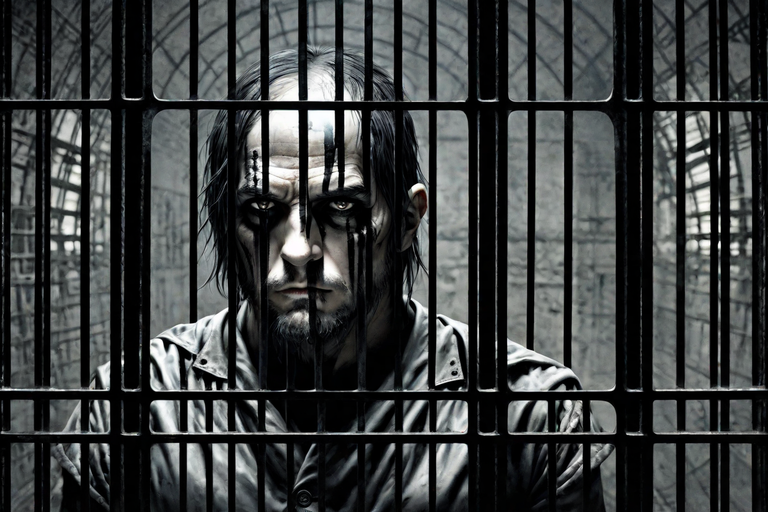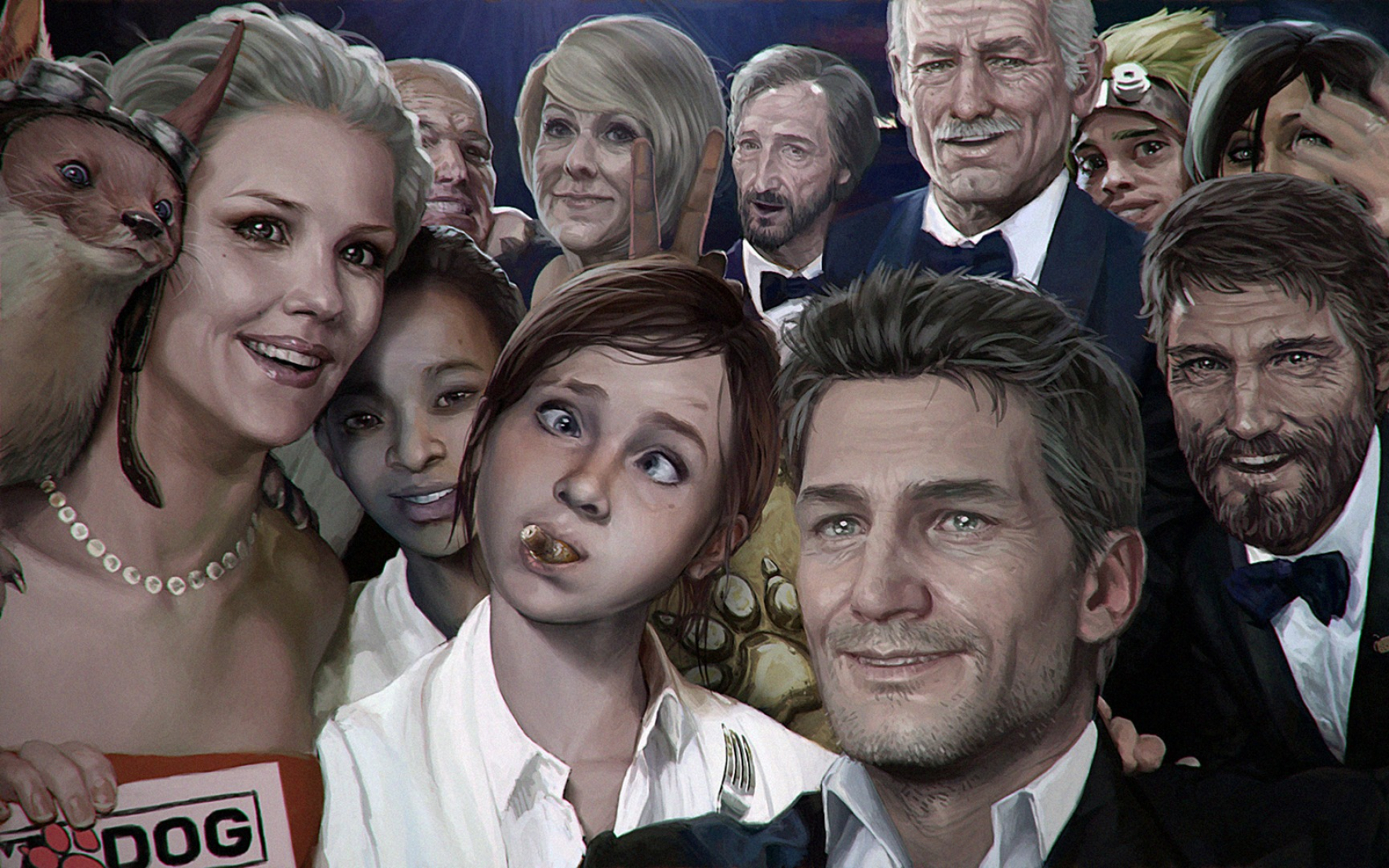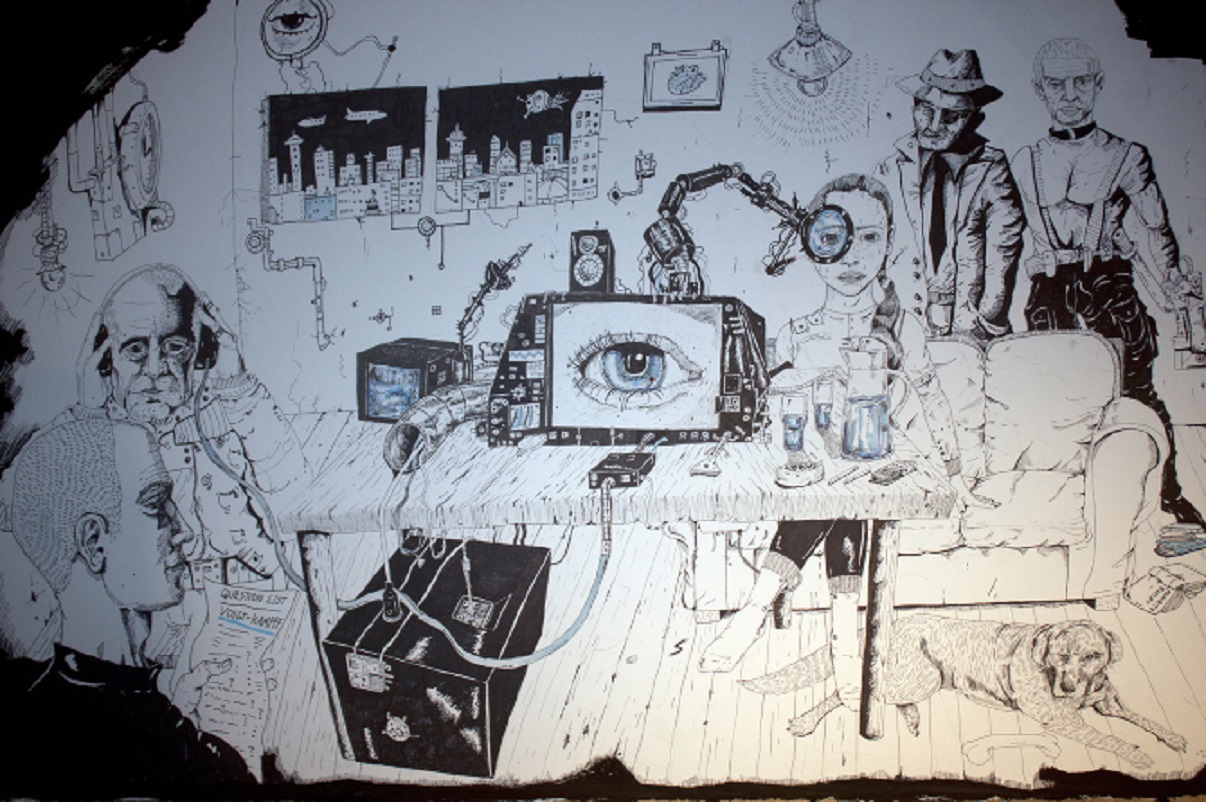The difference between a young child and an adult is that as adults our consciousness has been modified. Our consciousness has been modified in order to allow us to adapt to the Designed World that we find ourselves in. What was plastic has now been set in stone and for this reason we can say that potential has been lost. Potential is always lost in adaptation to a determinate structure. As adults, we only have partial existence, we have a partial existence because we have departed from the Whole.
Not only have we departed from the Whole, we’ve done so without realising what’s happened to us. The murder has gone undetected, as Baudrillard says, and this is why Joe Campbell says something to the effect that ‘we are fractions who believe themselves to be integers.’ One way to talk about the process of life is to say therefore that it is essentially where we lose Wholeness and then find our way back to it, after various adventures. This is what Alan Watts refers to as the Game of God, which is where we forget our true nature and then – eventually, after a long, long time – remember it again. Cosmic Amnesia is eventually dispelled.
What happens on the foot of our forgetting is that we get swept headlong into an illusion – the delusion that comes about as a result of us thinking that we are who we aren’t. We misconstrue everything because of this delusional basis. We become attached to a delusory identity and anything we experience as a result of being attached to a delusiory identity is inevitably going to be just as delusory as the mistaken identity itself is. The ‘self we believe ourselves to be’ is an illusion and so – therefore – is everything that happens to it. This is the classic definition of ‘a game’ – a game is real only insofar as who we are in the game is real, but ‘who we are in the game’ can never be any more real than the game itself, which isn’t real because it’s a made-up thing. Nothing can come out of fantasy except more fantasy…
We can therefore talk about life in terms of the process whereby we depart from original Wholeness and then via – whatever series of events – come back to it, but this would be missing out a key ingredient of the drama, which has to do with the intentions or wishes of the delusionary identity, which has no interest in Wholeness! For one thing, the fractional identity (or conditioned self) is incapable of comprehending what is meant by ‘Wholeness’ and for another, Wholeness means the end of the fractional identity so clearly there’s no profit to be had for it in this endeavour. This of course adds a whole new degree of complication to the story – it means that we’re going to be fighting against the process of ‘returning to Wholeness’ with everything we’ve got. We’re going to be playing an endless delaying game, which indefinitely prolongs our unhappy situation.
“Your greatest enemy is the one who lives within your two sides”, says the Prophet, but an enemy like this we never suspect. We don’t have any insight into what is really going on therefore so instead we frame everything in terms of what will benefit the Mind-Created Identity that we think we are, and this is just another way of saying the same thing – we frame what’s going on in terms of protecting the status quo that facilitates the continued existence of the fractional identity. Whether we’re struggling to advance the cause of the self or the collective makes no difference – both equal the ‘mistaken identity’. Both equal ‘the script that thought has provided us with’.
The generic self and society both come down to the same thing – they both come down to the very same system, the very same ‘status quo’. We can’t separate the two. Because of the way conditioned consciousness works we’re always going to be struggling to uphold the status quo – the fractional self needs the status quo in order that is might continue to be validated (or facilitated) by its environment. We’re always going to be struggling to uphold the established system and this mechanically predetermined activity is always going to take us away from our original true nature, which is non-mechanical. All fighting, all striving, all purposefulness takes us away from our original nature and yet at the same time struggling, fighting, striving, etc is all we know how to do. And when things get bad we automatically think it’s because we’re not struggling hard enough, or effectively enough – we fail to see what the real problem is.
This is a way of talking about irreversibility therefore – the transition from <child> to <adult> is an irreversible one – it only happens the one way and as it happens we lose all connection with the child in us. As we move mechanically in the direction of the unchanging Equilibrium State we forget where we came from – as far as we’re concerned the blandly static Equilibrium State is the only reality there is and so there’s nowhere else to come from. In the E-state everything happens according to the rules – the rules keep everything in place, the rules keep the machine running as it should do, and because our identity too is being defined by these rules we have no way of relating to the prior situation, which is where who we are and what the world we live in are completely undefined.
‘Spontaneity’ and ‘freedom’ are two ways of talking about the same thing – if I’m spontaneous then I’m free and if I’m free then I’m spontaneous. The Directed Realm is the perfect antithesis of this, so to speak – in the Directed Realm there’s no freedom (which is another way of saying that there’s no spontaneity) and this means that things can only happen when it has been determined by the system that they can. Events don’t happen by themselves in this causal realm, they happen as result of being compelled to happen. Spontaneity and compulsion are antithetical principles therefore – when we force some outcome or other (and if we succeed) then we obtain exactly the situation that we had in mind and although we see this as a ‘positive achievement’, the accomplishment of a goal, what we’ve actually done to achieve this is to repress or block all any type of change that we ourselves haven’t approved of, and the thing about this is that the type of change that we want to see happen isn’t really ‘change’ at all but optimization.
Optimization means that we’re getting more and more effective and more and more efficient at doing whatever it is we’re already doing, and so we can’t say that this is change at all. We’ve repressed all the other possibilities – we’ve crossed all the other possibilities off the list apart from the one possibility we want, so although there is activity going on here, it’s activity that’s geared towards conservatism rather than exploration. In ‘exploration’ we don’t hang onto our ideas about how things should be – which is precisely what optimization is all about. The type of so-called ‘change’ that we’re interested in as serious-minded adults is – we might say – ‘change where we keep on improving our ability to stop anything happening that we don’t want to happen’. We’re getting better and better at controlling, better and better at enforcing our will, therefore, and that feels good to us.
‘Optimization’ still doesn’t sound bad to us, of course – ‘What’s wrong with improving our ability to enforce our will?’ we might ask. This sounds like ‘the way to go’, after all. The point here however is that it isn’t our will at all that we’re enforcing; it isn’t our will because – as we started off by saying – our consciousness has been modified when we made the adaptation to the adult world and the ‘will’ in question belongs to the adapted consciousness, not us. It’s our ‘programming’, in other words. We can talk about ‘the adapted consciousness’ but what we’re really talking about when we say this is ‘the reflection of the determinant or artificial environment within us’. When we adapt to the artificial or designed world what we’re doing is letting that world define us, and so when it does define us that means that ‘we are it’! We have been ‘co-opted’ or ‘subsumed within the system’. This is what adaptation is all about – adaptation means that we become whatever it is that we’re adapting ourselves to.
When we’re in Adapted Mode then this imparts the benefit of certainty – we know who we are and what we’re doing and we also know why we’re doing it, and this sense of purpose takes away the uncomfortableness of not having rules to tell us what to do, to tell us what part we should be playing. Straightaway we’re ‘covered’ – we now have a cover story and we’re going stick to it like glue. The one thing we’re not doing is ‘being autonomous’ – that’s the one thing we can’t be when we’re playing some by someone else’s rules (or when we’re playing by any rules, for that matter). We’re not enacting our will, we’re enacting the agenda of the system that we have adapted to, and there is a huge amount of pure, brute force in that. There might be no end of force but there’s no sense in it however – there’s no sense in it because it’s all just a blind insensate mechanism.
The system or mechanism is very sure of itself – as mechanisms always are – but the compulsion that it brings to bear on us serves no function other than to perpetuate itself (which is the agenda all machines have). We’re so keen to get on the right side of the system that we don’t pay any heed to any other considerations; we trust – without ever looking into the matter – that the social world can take care of us (in the sense of providing us with a sense of meaning, an identity, a role in life, the opportunity to grow and thrive, and so on) but it doesn’t and it can’t do this. It can’t because the system doesn’t know anything about what it means to be a person, about what it means to be human being. It doesn’t have a clue about this any more than an AI does (although you might be fooled into thinking otherwise). All it knows (inasmuch as it ‘knows’ anything) are its mechanical rules regarding how to function in the world, all it knows are its own mechanical roles and categories. All it can do is bully us to conform to its expectations, in other words, and we go along with this, trusting that it’s for our benefit. This is Philip K Dick’s ‘service in error’.
The machine which is the social institution works for its own benefit, not ours, and if we weren’t so identified with it – Stockholm style – then would see this as plain as day. It’s as obvious as hell, and yet at the same time we never spot it. It predates us, but we imagine that it’s there to serve us, there to help us. What it does do is to support and help the adapted form of consciousness which is who we think we are, and this is the reason it doesn’t seem to make any sense to us to say that society isn’t our friend (or that culture isn’t our friend – as Terrence McKenna says). Culture isn’t our friend because the way it functions is to keep us asleep. Or as we could also say, when we’re institutionalized then the system will take good care of us but that’s not in the least bit helpful really since when we’re institutionalized we’re not ‘ourselves’ but ‘who the institution says we are’. The bottom line is that we are compelled by the institution (i.e., we are compelled by the system of thought) to identify with an illusion and this is how we are controlled so effectively. We’re not being controlled ‘for our own good’ however – no matter what we might be led to believe…
Image – Flowers VIP wall by TAMOONZ in London






